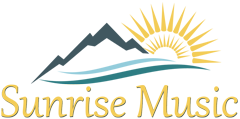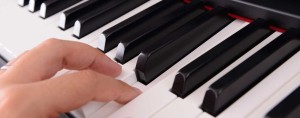Sunrise Music Resource Center
For the Sunshine Piano Studio Year: September – May
Welcome to Sunrise Music & Sunshine Piano Studio Resource Center! Music students & parents will find resources, information, materials, videos, links, etc., to complete the piano year. Sunshine Piano Studio has 2 yearly recitals: Christmas & Spring Recitals
Sunrise Music Courseware
Additional Student Opportunities
ETMTA Student Opportunities – Tyler, TX
East Texas Music Teachers Association is part of the TMTA & MTNA
Fall Festival (Fee) – weekend in November, Students memorize and perform 1 solo and/or duet before a judge at Braithwaite Recital Hall, UT Tyler. Perform at Fall Festival with recital groups of 6 – 8 students.
Theory Testing (Fee) – Last weekend of January. A written exam prepared & graded by TMTA for Levels 1 – 12. Medals are awarded. This test is required for most TMTA convention activities & great college prep.
Achievement Auditions (Fee) – Weekend in March/April – Students play 3 memorized pieces alone before a judge at UT Tyler. 30 students are chosen for a Sunday afternoon Honor’s Recital at Braithwaite Recital Hall UT Tyler.
Helen Elbert Collaborative Music Festival (Free) – Weekend in April – A chamber music festival for the fun of playing music together. Area musicians of all ages can participate in groups of 2 – 15 musicians in the evening performance at TJC Performance Hall. Music is traditional to crossover to innovative.
Helen Elbert Festival Composition Contest (Fee) – The winning composition is featured & played at the April chamber music festival evening performance.
Ensemble for TMTA State Convention in June (Fee) – Students who have taken the TMTA Theory Test can participate in a Beginner, Intermediate, or Advanced ensemble of students that plays on a stage full of grand pianos and in costume to go with their music. (the fee includes a T-Shirt worn at Convention)
TMTA Composition Contest (Fee) – Students compose solo or ensemble compositions that are submitted to TMTA for adjudication by highly qualified judges. Winning compositions are played at the TMTA convention with the possibility of going on to the national MTNA convention.
TMTA Convention in June – Student opportunities: Ensemble, All Stars, Digital Keyboard Orchestra, Chamber Music Clinic & Contest, Original Compositions. Most of these require taking the TMTA Theory Test.
Courseware Login
Love the Daily Practice Session!
“It’s all about the Practice, it’s all about the Practice” – whether you do sports or instruments, there is no substitute for practice to learn your skill. Piano practice is done alone at home, daily. Learn to love your daily practice sessions! Have a plan, so you can take your playing to places it has never been. You need to discover for yourself in the practice room what the teacher taught you in the lesson. Create your place to practice with good lighting, the piano, and music books.
- Set a realistic practice schedule – daily consistency is what brings results. Set a timer and don’t quit until it rings. Decide the times you will practice each day, stick to it.
- Set realistic goals for each session – work on one small section of a song or one scale or chord work, etc., that you need to improve. Be patient with yourself and slow down to understand and learn the moves correctly. Daily repetition will produce results in playing.
- Be creative in your practice – once you master the music, change it up by changing rhythms, different touches - staccato or legato, play it your way with extra notes, etc.
- Reward Yourself – after your practice session is done, play whatever you want for fun!
Great practice habits will result in better overall playing and take you to the next level! Fun!!
*Parents your most important job is to set daily practice times and require it from your student! www.PianoParentPodcast.com - a great resource for piano parents by Shelly Davis, piano teacher
Reading Music Process - Sunshine Piano Studio
What is an effective way to learn to Read Music to play piano, to read and to understand music? That was my search after hearing so many times over the years, “I wish I could play piano, but I quit lessons and wished I hadn’t quit”? Why had so many quit? I realized it was because of the typical reading music process used to teach an instrument with 88 keys. Very challenging! I have found that by using a process that immediately connects the student to the instrument by learning to play good sounding songs keeps the student motivated. This is done by teaching students to see and play musical patterns, found in music. Students learn by doing - playing songs, while focusing on learning instrument navigation. From the first piano lesson, students are also relating to the written music to begin the reading music process.
As students focus on playing songs on the piano, learning the language of music (Music Theory) is systematically introduced from the first lesson to begin the reading music process. Does it take time? Yes, as it also does in school to learn to read and write the language they have been speaking since childhood. Talk first, read later. Play first, read later. Students are learning Keyboard geography on the keys, but also on the written music. They are learning note names on the keys and music staff, how to play rhythms and see beats/rhythms on the page, how to put chords together on the keys and recognize chords, scales, arpeggios, octave patterns on the page, key signatures, time signatures, & so much more! This process gives students musical tools to eventually play what is on the written page, but also to understand music so they can arrange, compose, & improvise. Each year adds more to Reading Music!
Piano Studio RECITALS
- December (Christmas Recital)
- May (Spring Recital)
Piano Year BREAKS
- Thanksgiving Week
- Christmas Week - New Year's Week
- Spring Break Week

